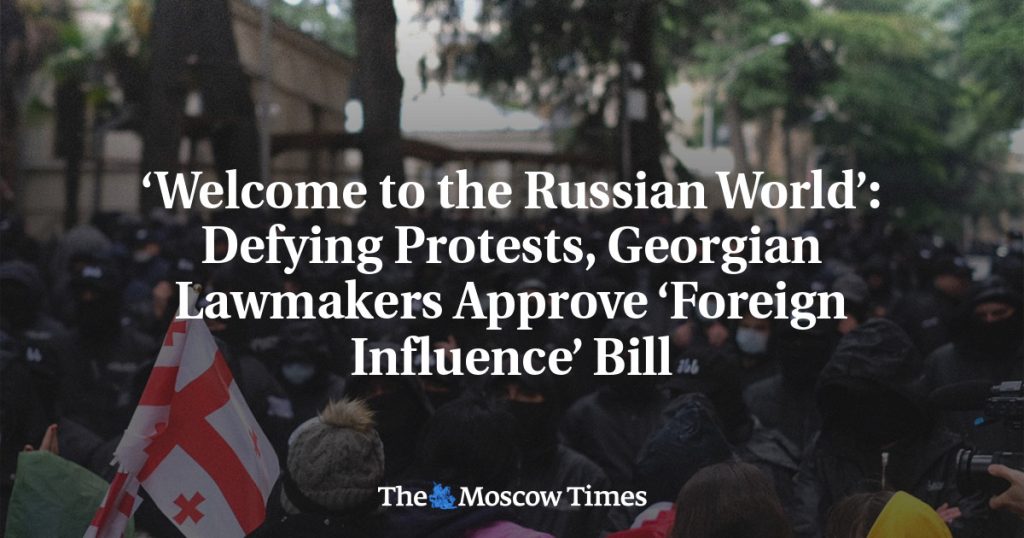Georgian lawmakers approved a controversial bill regulating “foreign influence” after protests erupted in the South Caucasus country, with citizens fearing parallels to Russia’s repressive laws. The bill requires NGOs and media outlets receiving over 20% of their funding from abroad to register as entities serving foreign interests, sparking concerns about threats to freedom of speech and civil society, as well as Georgia’s aspirations to join the European Union. Despite widespread protests and international criticism, the ruling Georgian Dream party pressed forward with the legislation, leading to clashes between protesters and police in Tbilisi.
The protests against the bill evolved into a broader confrontation between society and the government, reflecting concerns about Georgia’s foreign policy trajectory. Many protesters fear that the law could lead to increased government control and censorship, mirroring restrictions seen in Russia. Demonstrators, including some Russians who relocated to Georgia to escape repression, have voiced their opposition to the bill, emphasizing the implications for democratic values and European integration. The mass demonstrations have drawn tens of thousands of people, with protesters denouncing the legislation as a barrier to Georgia’s path to the EU.
Despite the widespread opposition, Prime Minister Irakli Kobakhidze has pledged to push ahead with the bill, raising concerns about the government’s commitment to democratic principles. President Salome Zurabishvili has indicated that she will veto the legislation, but Georgian Dream’s parliamentary majority could override her decision without opposition support. The bill’s proponents argue that it promotes transparency and accountability, aligning with European values, although critics view it as a tool for stifling dissent and exerting control over civil society.
The strong public backlash against the bill has underscored tensions within Georgian society and highlighted the country’s complex geopolitical position, caught between Western aspirations and Russian influence. The protests have showcased a united front against the legislation, with demonstrators waving Georgian and EU flags and expressing their rejection of Russia’s authoritarian practices. Civil society organizations and human rights groups have condemned the bill, emphasizing its potential to violate fundamental rights and restrict democratic freedoms in Georgia. The European Court of Human Rights has previously ruled against similar legislation in Russia, citing violations of the right to association.
As the protests continue to escalate, Russia has denied any involvement in Georgia’s internal affairs, dismissing accusations of interference and suggesting that the demonstrations may be orchestrated from abroad. Despite lingering tensions between Georgia and Russia, the focus of the protests remains on safeguarding democratic values and preserving Georgia’s independence from external influence. Experts have noted the significant implications of the bill for Georgia’s future trajectory, warning that adopting laws akin to those in Russia could have lasting repercussions for the country’s development and European aspirations. The ruling party’s efforts to redefine Georgia’s role in the region have sparked concerns about potential alignment with Russian interests and the erosion of democratic norms.


